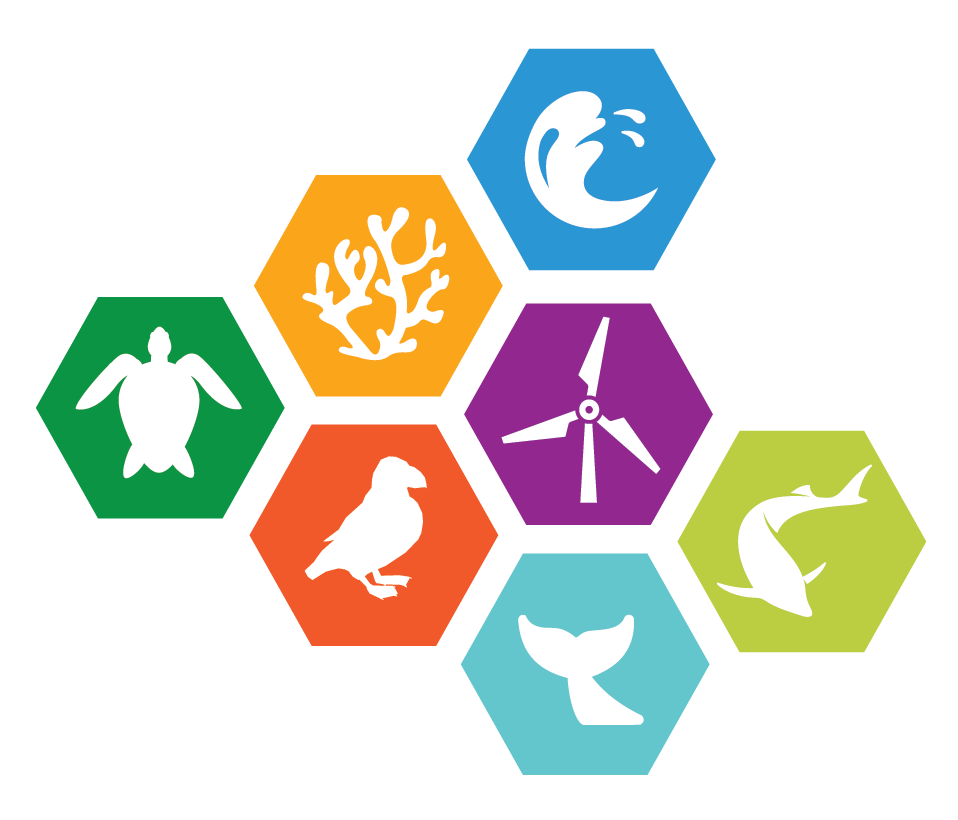The Regional Wildlife Science Collaborative for Offshore Wind (RWSC) has established a partnership with the Center for Ocean Leadership to facilitate research related to offshore wind and wildlife in U.S. Atlantic waters. The Center for Ocean Leadership’s added capacity helps ensure that the RWSC can execute important offshore wind research in a timely and coordinated manner.
“This is an important step to accelerate critical research on offshore wind and ocean wildlife,” said Emily Shumchenia, RWSC’s director. “The Center for Ocean Leadership will work with RWSC to start our research program and kickstart new data collection efforts key to environmentally responsible offshore wind development.”
The RWSC is a unique collaboration among four sectors: U.S. federal agencies, Atlantic coast states, offshore wind companies, and environmental nonprofits. RWSC was formed in 2021 to coordinate offshore wind and wildlife research, data collection, and data management among the four sectors and with the broader research community. New RWSC-sponsored research will help ensure that the states’ and federal government’s renewable energy goals are achieved while also protecting biodiversity and ocean ecosystems. As of mid-2023, state policies aim to procure 42 gigawatts of offshore wind capacity by 2040. The federal administration’s national goals are to deploy 30 gigawatts of offshore wind by 2030, 15 gigawatts of floating offshore wind by 2035, and to develop offshore wind while protecting biodiversity and promoting ocean co-use.
This summer, after extensive engagement by hundreds of wildlife and offshore wind scientists and experts, RWSC released a draft regional Science Plan that prioritizes the research needed to explore, minimize, and avoid potential offshore wind impacts on the ocean environment. The draft plan’s 90-day public comment period closed at the end of September, and a final version will be released in early 2024. This plan will guide the entity’s research funding decisions.
To help manage funding related to these research projects, RWSC established a memorandum of understanding with the Center for Ocean Leadership. As a part of the University Corporation for Atmospheric Research, Center for Ocean Leadership has robust capabilities for administering, disbursing, and tracking research funds.
“This partnership is a wonderful opportunity for helping manage a critically important ocean science effort to support sustainable, renewable offshore energy,” said Andrew Rosenberg, the Center for Ocean Leadership’s Senior Advisor. The Center for Ocean Leadership became a University Corporation for Atmospheric Research Community Program in 2022 to support the ongoing work of the ocean science community. It is a convener and coordinator for ocean science, working with more than 85 affiliated institutions and federal agencies across the government. Center for Ocean Leadership-affiliated institutions span the academic, industry, and nonprofit sectors engaged in ocean science, technology development, and public education.

RWSC is co-hosted by the Northeast Regional Ocean Council (NROC) and Mid-Atlantic Regional Council on the Ocean (MARCO). RWSC’s annual work plan is funded by financial contributions and in-kind support from NROC, MARCO, and the four sectors. NROC and MARCO are the two Regional Ocean Partnerships on the U.S. Atlantic coast and are federally authorized to promote coordination among various government agencies and collaboration related to shared priorities, thereby reducing duplication of efforts, and maximizing opportunities to leverage support.

University Corporation for Atmospheric Research (UCAR) is a nonprofit consortium of 122 North American universities granting degrees in atmospheric and related fields in Earth system sciences. It manages the National Center for Atmospheric Research (NCAR) on behalf of the National Science Foundation. UCAR also hosts a suite of programs, called UCAR Community Programs, that provide service and support to the academic community. Any opinions, findings and conclusions or recommendations expressed in this material do not necessarily reflect the views of the National Science Foundation.